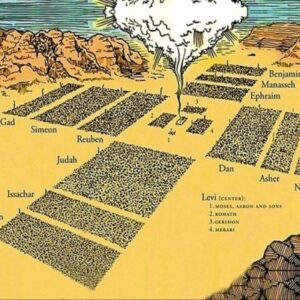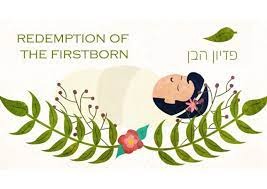Raboyseyee and Ladies,
We begin with mazel tov wishes to our friends Barbara and Gavi Simon upon the wedding this past Sunday -with the Ois and eishes chayil in attendance- of their beautiful daughter Jamie who was escorted down to the chuppah to marry Yonatan Gabay, he the son of Sophia and Samuel Gabay, they of Chicago, IL. And what a wedding it was! May Jamie and Yonatan merit to enjoy many decades of blissful marriage and be a source of much pride and joy to their families.
And a mazel tov shoutout to Leelah and David Weitz, children of our dear friends Dasi and Moti Weitz upon the arrival and upcoming sholom zochor – Friday night- and bris Im’h this coming Sunday morning. May baby Weitz be a source of much nachas to his parents and grandparents. A special mazel tov to elter-zeyda (great grandfather) Mr. Izzy Weitz whom the Ois has the great pleasure of greeting every shabbis in shul. May he have continued good health in the years ahead at least to 120.
Terminated for Cause?
Of late, we’ve been reading about companies- especially in the tech sector- laying off thousands at a clip. Many, if not most of these layoffs are permanent. Their jobs have been eliminated; those laid off will likely not be getting their jobs back; oy vey. As well, we’ve been reading how AI might, or will be replacing many jobs; people will be fired. Ober, long before any company did any firing of employees or even layoffs en-masse, it was the RBSO Himself, who -in this week’s parsha mamish- fired mamish- terminated, perhaps for cause, maybe not- a group of several thousand of His trusted employees. Let’s dig further, but we begin here.

Shoin: having recited chazak three times as we ended last week’s parsha, hopefully you’re all stronger and in better shape to take on Sefer Bamidbar and lommer schnel unfangin (let’s quickly begin). The emes is that you’ll need strength just to stay awake because; our parsha is quite repetitive. Every word of the heylige Toirah is avada heylig, ober this parsha, not too exciting. In fact, even Rashi, who comments on kimat every verse, was challenged and had little to say. He did, however, get into a huge argument with the Ramban over the census, ober, that for another time.
Efsher you’re wondering why Sefer Bamidbar is better known as the book of Numbers. Bamidbar, literally translated, means ‘in the desert’ and taka the entire sefer is about the travails of the Yiddin during their 40-year sojourn through the midbar. The heylige Toirah will spare no detail as it recounts one foible after another; stay tuned, they’re mamish givaldig. Ober, why is it that all the goyim and even many Yiddin refer to it as the Book of Numbers, a book about numbers and counting? What is taka the relationship between the two? Who gave it this name and why?
The answer is quite simple: Seemingly our sages whom we lovingly refer to as Chazal, named Bamidbar Sefer Hapikudim’ (the Book of Censes) because it opens with a census of the Yiddin carried out in the desert “on the first day of the second month in the second year of their coming out of the land of Mitzrayim,” and nearer to the end, another count will be ordered (Parshas Pinchas). That one, in year 40 is but 38 years later just prior to the Yiddin’s entry into the Promised Land.

A previous count was held some 6-7 months earlier and as to why the RBSO wanted the Yiddin counted, why three counts – two in such close proximity- and the differences between them, ver veyst? Says Rashi azoy: the RBSO counted the Yiddin because He loved them. “Because they are dear to Him, He counts them all the time. Seemingly this love fest didn’t last all that long. It so happens that kimat all the Yiddin counted in the first and second counts will have died -read: killed by the RBSO- during the 40 year midbar experience. Why? The list of various sundry sins includes spying, loshoin horo about the land, complaining unnecessarily as in kvetching, and sex-capades with hot Moabite shiksas.
Back to the parsha which opens with the instructions to conduct the census. When the RBSO orders a count, He wants detailed results. He wants to know the number of Yiddin in total, the number belonging to each individual sheyvet (tribe), just how many Liviyim (Levites) and specifically how many from each are firstborn. Let us quickly review the RBSO’s very specific instruction on how the census should be conducted. In the very first perek of our parsha, in pisukim 1-46, the RBSO commands Moishe to count the entire population (seemingly that means males only). Moishe did just that and found a total of “603,550.” Was everyone counted? Not! The heylige Toirah –posik 47- tells us azoy: “The Leviyim (Levites) according to the tribe of their fathers were not counted among them.” In other words, they were either specifically excluded from the count, or not counted accidentally for whatever reason. Veyter. Which was it? Good question and the heylige Toirah tells us what happened next. As it turns out, the RBSO, in pisukim 48-53 of the same first perek -and after the count was already completed- commands Moishe not to count the Levites among the Jews. Did Moishe know about these instructions in advance? Or, having forgotten to count them and not to embarrass Moishe, the RBSO then instructed Moishe not to count the Levites? Ver veyst! But He does command Moishe to appoint the Levites to take care of the mishkan. This section concludes with a general statement that the Yiddin fulfilled all of the RBSO’s commands, as delivered to Moishe.
Back in Parshas Boi- when the RBSO smote all the firstborn among the Egyptians, He sanctified the firstborn of the Jews, assigning them the role of serving Him in the Tabernacle to be built later in the midbar. The bichoirim- firstborn- were His. He saved them and then employed them to serve in the Mishkan. Ober, here in our parsha, they are all unceremoniously fired. They will be replaced by the Liviyim. Let’s read the posik innvaynig. Says the heylige Toirah (Bamidbar 3:12-13), azoy: And I, behold, I have taken the Liviyim from among the children of Israel instead of all the firstborn that openeth the matrix among the children of Israel: therefore, the Liviyim shall be mine; because all the firstborn are mine; for on the day that I smote all the firstborn in the land of Egypt I hallowed unto me all the firstborn in Israel, both man and beast: mine shall they be: I am the Lord.”

The heylige Toirah explicitly tells us that the Liviyim replace the firstborn without giving the explicit reason for the substitution. Why were the RBSO’s servants suddenly replaced? As mentioned, the RBSO never tells us; mistama it’s none of our business. Ober, was that good enough for Rashi or the medrish? Not! In the medrish (Bamidbar Rabba 3), we find this: “Initially, the firstborn served the RBSO in the Tabernacle; however, because they committed the sin of the eygel (Golden Calf), the RBSO chose the Liviyim to replace them, because the Levites had not been party to that sin.” Is that what happened?
Let’s go back to the eygel incident and read what the heylige Toirah did tell us. At that difficult hour when the Yiddin declared “These be thy god” (Shmois 32:8), the tribe of Levi remained loyal to the RBSO. When Moishe cried out, “Who is on the Lord’s side?” – the entire tribe responded to his call: “And all the sons of Levi gathered themselves together unto him” (32:26). That is why the RBSO says of the Levites: “And I, behold, I have taken the Liviyim from among the children of Israel instead of all the firstborn.” Did the RBSO mention that the bichoirim were sinners? Not! What He did say is that the Liviyim were good people and that He was rewarding them. Absent from the text -as far as the Ois can read- is what specifically the firstborn did that got them fired.
Yet, later in Devorim (10:8) we read this: “At that time the Lord separated the tribe of Levi, to bear the ark of the covenant of the Lord, to stand before the Lord to minister unto him, and to bless in His name, unto this day.” Says Rashi that we must look carefully at the words `at that time’: Less than a year from the time of the redemption from Mitzrayim, you [that is, the firstborn] erred, committing the sin of the Golden Calf; however, those from Sheyvet Levi did not follow your example. That is why the RBSO has separated them from you.
Ober, we ask again, did the bichoirim mamish participate in the eygel caper? Didn’t we learn -from the heylige Toirah itself, in the text mamish- that only 3,000 participated? We did! The Toirah says approximately 3,000 were killed by their fellow Jew for their participation? Were they bichoirim? Ober, didn’t we also learn -from many a medrish- that the participants were all members of the erev rav (the mixed multitude) who accompanied the Yiddin when they left? We did! And the shaylo is azoy: were the firstborn complicit in the eygel fiasco? If not, why were they fired and replaced?
Though the eygel is many parshas back, let us again harken back for a moment and chazir to better chap if the bichoirm were guilty as Rashi suggests. When Moishe came down from Har Sinai and saw the golden calf, he said ‘Whoever is for G-d, join me.’ After the Liviyim gathered he ordered them to grab their swords and execute anyone involved. They did just that. The heylige Toirah told us that ‘approximately 3,000 men died that day’ (Shmois 32: 26-28). We also know that there were around 600,000 men at Har Sinai. And the question is azoy: did only 3,000 participate in this affair (just half a percent of the population)? Or, were the 3000 the instigators/leaders, and many more followed them? Were the firstborn complicit?
Says the Ramban azoy: even though only 3,000 were killed, the majority of the nation sinned. Those who were killed and struck in the plague were few, but the majority nonetheless sinned with bad thoughts. In that case, the majority could well have included the bichoirim and shoin; for that reason -because they belonged to the RBSO and still sinned- they were fired by the RBSO. Having been “His,” was more expected of them? Seemingly.
אמר השם למשה כי עשו שתים רעות … והנה העבירה הראשונה לא ידענה רק השם לבדו שהוא יודע תעלומות לב, והשנית מעשה הזובחים החוטאים שבהם כאשר פירשתיוהנה רוב העם חטאו במעשה העגל, כי כן כתוב ויתפרקו כל העם את נזמי הזהב, ולולי זה לא היה הכעס בכולם לכלותם. והנה הנהרגים והנגפים מועטים, כי ברובם היה החטא במחשבה רעה, כמו שפירשתי
And says the Seforno azoy: Only a few literally sinned; most of the nation sinned but “passively.” Although only a small portion of the nation actually worshipped the Eygel, many others stood by passively and did little to prevent their neighbors from violating the prohibition against idolatry – one of the most important injunctions of the Toirah. They could have acted responsibly and forcibly prevented the sin from taking place. But they could not bring themselves to take aggressive action. As a result, the sin of the Eygel took place. In other words, the sin was the result of the actions of the few and the passivity of the majority. Seemingly both Rashi and the Seforno believe that the bichoirim could have done more. Perhaps.
Shoin, let’s chazir: When Aharoin and his sons were anointed in order to begin serving in the Mishkan, it transformed their descendants for all time, establishing them as Kohanim (priests) and the only people to perform the Temple service. It’s taka emes that initially, the firstborn were designated for the Temple service as the RBSO had spared them from the Malach Hamoves (Angel of Death) during makas bichoiris (death of the firstborn). As a result, they became His. Ober, they became unworthy when they took part -even if but passively- in the sin of the Golden Calf. Those from Sheyvet Levi did not participate in the sin, and took their place.

Shoin, efsher you’re klerring azoy; if the firstborn were fired for being passive, how was it that Aharoin who was mamish an active participant -he did of course help create and fashion the calf- came to be appointed to the priesthood? We would chap Moishe’s appointment (and his descendants) had he gotten the nod, ober Aharoin? Ironically, it appears that it was this very same event in which Aharoin played a key role that established him as the High Priest. The bottom line: the RBSO has a sense of humor. What’s taka pshat? So happens that it’s not the first time in the heylige Toirah were a sinner has been selected for greatness. Let us recall Yehuda and his roadside encounter and of course let us not forget that Reuvain mounted -so to speak- his mother’s bed. Oh, we forgot to mention that all twelve shvotim -all selected for greatness- concocted, participated and played significant lead roles in the kidnapping and sale of their brother Yoisef into slavery. Does the RBSO keep sinners very close? So it would appear; excellent strategy! Hey, wasn’t Dovid Hamelech selected to be the king of the Yiddin? The bottom line: this entire myseh is good news for most of us.
Says the medrish azoy: while Moishe was indeed closer to the RBSO, Aharoin was closer to the people. Aharoin is known as a lover and pursuer of peace, who loved people and brought them closer to the RBSO. This connection to the people was necessary for the priest to serve as the intermediary between the nation and the RBSO. Rather than reject sinners, the priest helped them to connect with G-d. As an aside, not everyone was convinced that Aharoin should serve as High Priest. 250 prominent members of the congregation joined with Koirach in challenging Aharoin’s appointment, ober that story for another day in the coming weeks.
The bottom lines: As we read in the heylige Toirah, the bichoirim (firstborn) were sanctified from birth, their holiness stemming from the fact that their lives were spared (at the time of the plague of the firstborn in Egypt). However, they were -in our parsha- to lose their birthright through their commission -even if passive- in the sin of the eygel. The Liviyim, were not sanctified from birth. No special miracle was performed for this group, yet, they chose not to participate in the golden calf fiasco. For that reason, so the RBSO tells us, they were selected and sanctified by the RBSO to serve in the Mishkan. Gishmak. Veyst zich ois azoy (seemingly): those granted sanctity and prove unworthy, forfeit it. On the other hand, sanctity gained through good deeds and conscious choices to be good, is seemingly forever.
Was the replacement of the firstborn a new concept? Not at all; we have seen this movie before. Back in Sefer Bereishis, we read how several firstborns were fired -some for cause mamish and others, well, we’re not quite sure about though the medrish always has its own taint sources. Eisav, the very respectful -to his father- firstborn child, seemingly forfeits his birthright to Yaakov, his naive yet cunning and righteous younger brother. Yishmoel, Avrohom’s firstborn, loses his to Yitzchok, and because of his sinful behavior, Reuvain forfeited his birthright to Yehuda -also not with very clean hands, and to his much younger brother, Yoisef. The bottom line: it does appear that status is primarily dependent on deeds and choices, not on birthright. As well, it helps when the RBSO likes you.
A gittin Shabbis-
The Heylige Oisvorfer Ruv
Yitz Grossman
